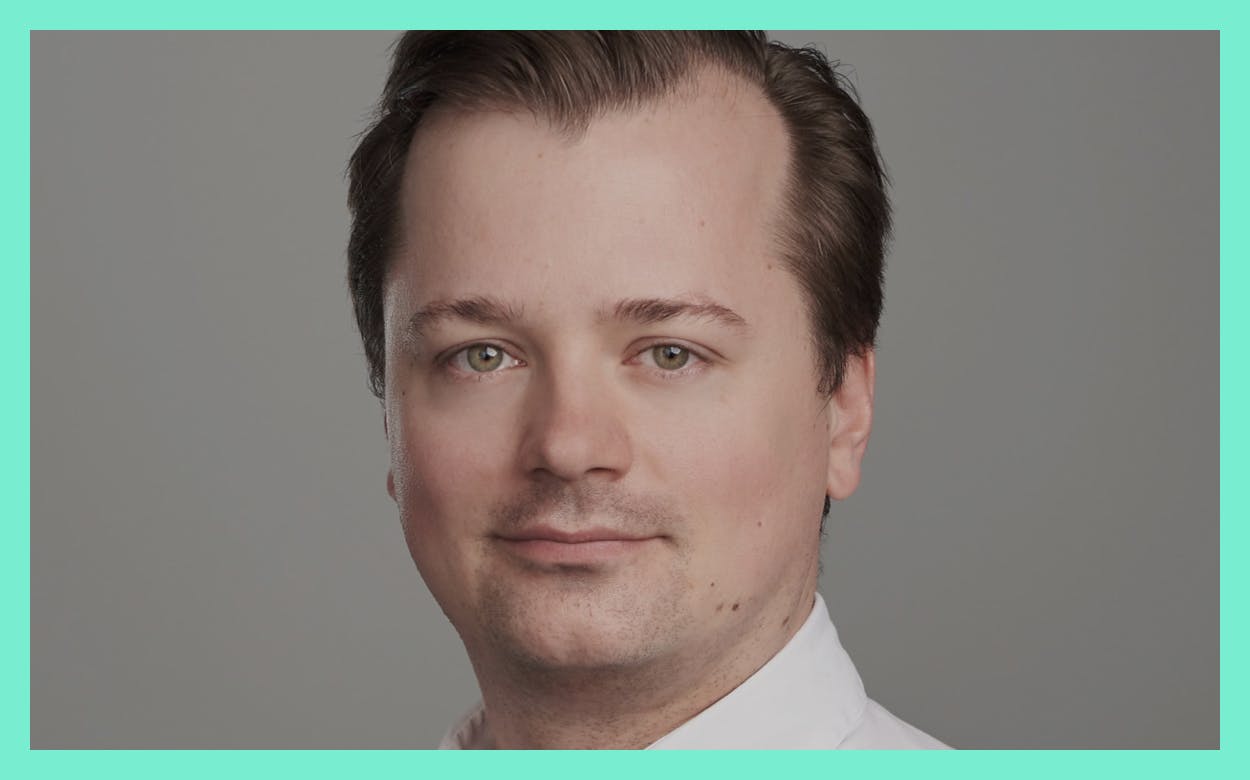Dr. Bálint Várkuti (CEO, CereGate)
Dr. Bálint Várkuti is the founder and Managing Director of the Munich-based deep-tech neuroscience venture CereGate. Founded in 2019, the company develops software solutions that unlock new capabilities for present-day neuromodulation implants. Among other applications, CereGate has developed a gait support signal alleviating Freezing of Gait Symptoms in patients with Parkinson’s and a balance stabilization system that acts through a spinal interface. Dr. Várkuti was born in Hungary, studied Psychology in Germany, and holds a PhD in Neuroscience from Max-Planck Graduate School of Neural & Behavioral Sciences. He has worked on both basic science (Connectomics in Tübingen, Germany) and BCI and stroke-rehabilitation technologies (Singapore) in the past. After leaving academia, he worked in the medical device industry, with his most recent position being Business Unit Director for Functional and Stereotactic Neurosurgery.

Can you explain your job to a five-year-old?
Not all people have the same ways of perceiving the world. Sometimes people are born without certain senses (blindness or deafness), or they lose some of their abilities because they get sick or very old. At CereGate, we are trying to find a solution to bring information these people might be missing from their senses back to them in new ways. This can help many people with chronic diseases to live a better life (e.g., by helping them to walk better by feeling their limbs again). The technology—what we do—only acts as a bridge. It helps them to help themselves.
What excites you most about your job?
As a software company, we can leverage a much higher pace of innovation and develop software-based augmentations to existing and successful therapies. This allows us to help people much quicker than if we were to take the longer path of developing entirely new physical medical devices, which can take decades. I love that our developments don’t just go on a shelf, but instead can have a real positive impact.
Which trend will change the future of medicine?
Medical Device Interconnectivity—smart devices that can communicate with each other and with wearable sensors or the cloud—have the potential to bring an unparalleled degree of personalization and adaptability to the treatment of chronic illness.
Looking back, which trends have you missed or underestimated?
I think blockchain technology (e.g., tamper-proof public ledgers) will play a big role in making interconnected medical devices safer and better-equipped to maintain patient data privacy. Gaining a better understanding of how these can fit into the present-day regulatory environment is something I would like to focus on more for the future, as there are already many exciting projects out there today.
Which MedTech initiative or startup deserves more attention?
I think digital health summits and meetups like Make Health Digital are great examples of bringing the right people together to create something new and more dynamic. We need more exchange opportunities such as these to allow this part of the German startup space to flourish.
Where would you put a million dollars?
I guess most founders would reflexively say into their own company. But in all seriousness, investing into deep-tech startups with a medium-range market entry—specifically those that focus on MedTech—is the only way we as a society can ensure we won’t just have a bunch of me-too devices on the market that merely compete commercially and don’t really bring the radical leaps in patient benefits that are needed. I think this is the main path to impactful innovation that makes a difference.
What’s the best advice you’ve ever received?
That it is wrong to think of progress (or success) as a straight line. Measuring where you are on your path relative to the linear plans you might have started with, or thinking in a string of consecutive chapters, is simply not how life really works. You can do everything right and still fail, so don’t shy away from reevaluating your strategy, and allow yourself to question your goals every now and then.